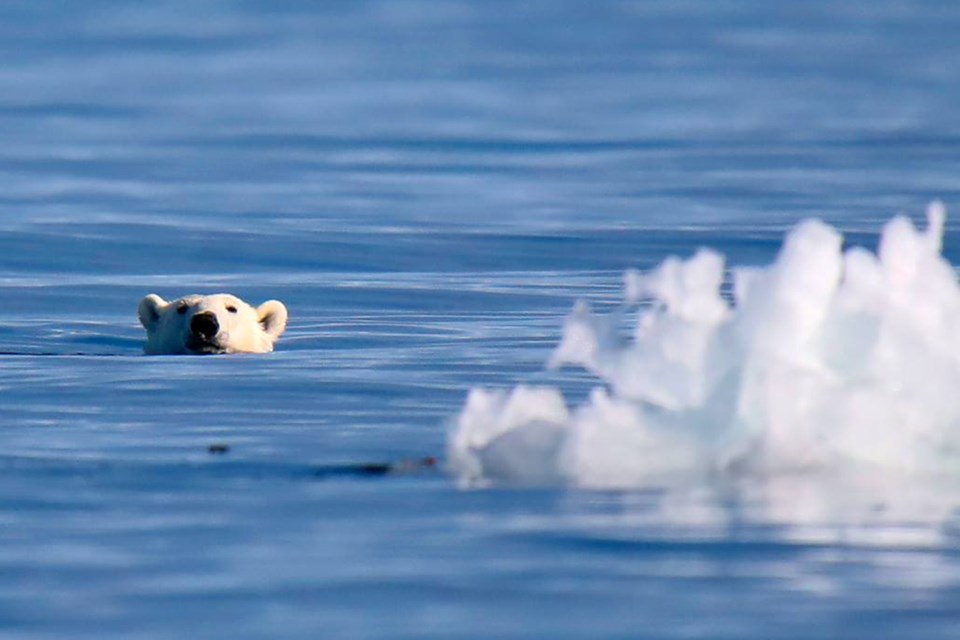In partnership with Climate Change Newmarket-Aurora, NewmarketToday brings you a regular series of columns aimed at creating awareness and engaging our community to take action on climate change.
Cold, crisp days in January call us to get outside for some winter fun on snowy slopes and trails. The shouts of children tobogganing or playing shinny on a backyard rink define Canadians in winter.
But ice is disappearing from our world. The frozen north is thawing now, and cruise ships venture across an ice-free Arctic Ocean. The ice sheets of Antarctica and Greenland, which are about two to three kilometres thick in places, and all alpine glaciers are melting at an increasing rate, faster than they are being replenished. Glaciers flowing out to the ocean are melting and receding, contributing to rising sea levels, and some have disappeared altogether.
Glaciers in the Canadian Arctic Archipelago have become the third largest contributor to global sea-level rise, according to Natural Resources Canada, outside of the Antarctic and Greenland ice sheets.
Researchers at the universities in Innsbruck and Bremen show in a recent study that the further melting of glaciers cannot be prevented in the current century – even if all greenhouse gas emissions were stopped now.
About one third of the glacier ice that exists today will be gone by the end of this century. This is unwelcome news for nations that depend on glaciers for drinking water and agriculture. Research done at the University of Northern British Columbia in Prince George shows that a child born in 2023 will witness the near complete disappearance of Western Canada’s glaciers.
Why should this concern us? Those glaciers are a source of cold fresh water. According to the National Snow and Ice Data Center, Boulder, Colorado, worldwide they store about 69 per cent of the world’s fresh water.
Alpine glaciers are a critical water resource for around two billion people, but those glaciers are threatened by global warming. Loss of sea ice in polar regions also contributes to loss of habitats.
Receding sea ice in Western Antarctica led to the deaths of thousands of emperor penguin chicks in the 2022 breeding season. If the ice breaks up and the chicks fall in the water before they have their waterproof feathers, they drown or freeze.
Ice levels are fluctuating erratically, and this species needs a stable amount of sea ice to survive.
We have all heard about the dire situation of polar bears in some parts of Canada’s North as they rely on sea ice to hunt for food.
Researchers in Greenland have drawn up ice cores from the Greenland ice sheet that tell a story of tens of thousands of years of Earth’s climate history.
There was a time before human history when much of the world’s waters were locked up in ice. Many changes in the atmosphere have taken place over billions of years, but humans have been around for only a small fraction of that time, and human civilizations have flourished in a stable climate.
Science has attributed much of the climate change we see now to human activity — namely the burning of ancient fossil fuels such as coal, oil, and gas — releasing long-buried carbon dioxide and methane into the atmosphere.
Some see the loss of Arctic ice as an opportunity for new resource extraction, and new trade routes, but I wonder how my grandchildren will cope in a warming world as the Earth’s cooling systems break down.
We need to take a lesson from the Indigenous First Nations of Canada and consider how our actions will affect our descendants at least seven generations ahead.
One thing stands out for me as I contemplate future winters without ski trails and outdoor skating rinks: The joy of ice may be a distant memory for our descendants unless we act now.
This is an urgent plea to say yes to a rapid transition away from fossil fuels and toward truly sustainable, renewable energy sources.
We know what we need to do, and we know how to do it.
Please consider joining a growing grassroots network of climate change activists here in York Region, learning about the science and urging climate action, because change is coming — ready or not — and we can be ready to build resilience with the power of yes.
References:
https://natural-resources.canada.ca/the-north/science/permafrost-ice-snow/glaciers/10955
https://www2.unbc.ca/newsroom/unbc-stories/most-western-canadian-glaciers-disappear-within-80-years
https://www.science.org/doi/10.1126/science.abo1324
https://nsidc.org/sites/default/files/documents/other/nsidc_factsheet.pdf
Inspired by the international organization Project Drawdown, Climate Action Newmarket-Aurora seeks to engage citizens, institutions, and policymakers in actionable and measurable solutions to stop catastrophic climate change as quickly, safely and equitably as possible. You can contact them at [email protected], and follow them on Facebook and Instagram.



